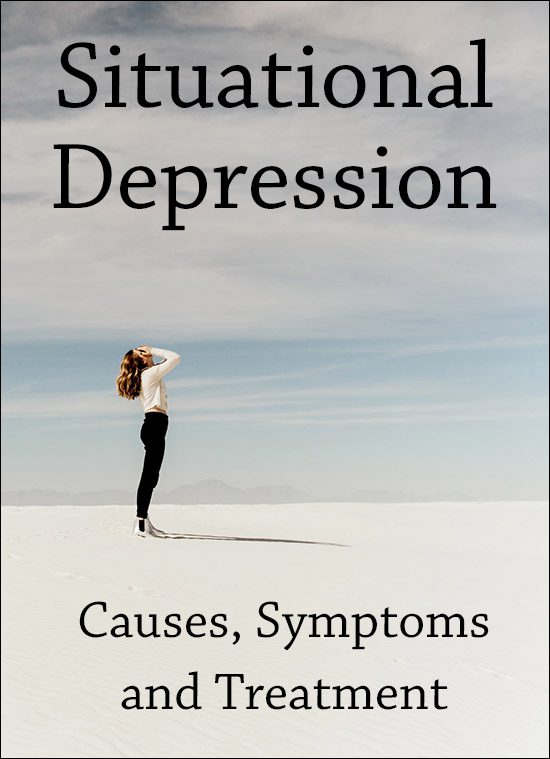Situational Depression is most often caused by a stressful event. Unlike clinical depression, the symptoms of situational depression are generally short-term and temporary, though they can still cause significant problems in a person’s day-to-day life.
Though the condition is not categorized as an official clinical disorder, it is very often considered a type of adjustment disorder, or more specifically, “Adjustment Disorder with Depressed Mood.”
It is safe to say that no one lives a stress-free life. Some people may have better coping mechanisms to handle it, but because so much of life is out of human control, stress is inescapable.
Several years ago Katy Perry announced that she was dealing with a bout of situational depression. She said her process of recovery made her stronger, which illustrates it is possible to overcome.
What’s important to note is that experiencing periods of sadness, melancholy, anxiousness or other symptoms of situational depression as a result of stress is an entirely natural and normal human condition.

What Causes Situational Depression?
Some of the most common causes of situational depression are a traumatic life event, unexpected stress or a combination of these factors.
For instance, the circumstances surrounding the sudden loss of a friend loved one or cherished family member can create an enormous amount of stress and uncertainty.
It is incredibly common for someone mourning a person’s death to suffer from issues of situational depression.
Other triggers can be situations like divorce, losing a job, a serious illness, or difficulties at school or work.
These types of stressful events can affect anyone’s mental and physical well-being in ways that disrupt the regular and healthy flow of life.
- Death of a friend or family member
- Divorce
- Loss of a job
- School or work difficulties
- Serious illness
What are the Symptoms of Situational Depression?
Though everyone deals with stress and depression differently, the symptoms most people experience during situational depression have common themes.
Some of the situational depression symptoms may include the following:
- Difficulty concentrating or keeping the focus on one responsibility at a time
- A desire to isolate or avoid events with friends and family
- Loss of interest in activities or hobbies once enjoyed
- Feelings of hopelessness and sadness
- It easily brought to tears
- Continually worried, anxious and overwhelmed
- An increase or decrease in appetite
- Trouble sleeping
- Self-sabotaging behavior such as skipping work or school, abusing drugs and alcohol or acting out sexually
- Feelings of worthlessness
- Suicidal ideations
How is Situational Depression Treated?
Speaking to a physician or therapist about any relevant symptoms brought on by external circumstances can help in diagnosing an episode of situational depression. It’s necessary to describe any recent traumatic events that invoked emotional feelings so other types of depression can be ruled out as the cause.
If the problems persist, a doctor may prescribe medications, such as selective serotonin uptake inhibitors (SSRIs) like Zoloft, Paxil or Celexa, to help with mood stabilization.
Seeing a counselor or psychotherapist is also particularly effective for people dealing with trauma, grief or stress in general.
Depression treatment approaches like cognitive behavioral therapy (CBT) can help improve a person’s ability to process mental and emotional turmoil and, ultimately, relieve the symptoms of situational depression.
It’s also incredibly helpful to practice a healthy lifestyle. A nutritious diet, consistently restful sleep, and regular exercise are all extremely effective in combating the physical symptoms of situational depression.
Relying on things like alcohol, drugs, overeating, or other activities that deplete energy resources and leave the body feeling sluggish to cope with the circumstances will only make matters worse and prolong recovery.
All too often, people turn to unhealthy coping mechanisms like substance use to numb the pain. Unfortunately, it can create dependence and lead to a substance-induced mood disorder.
Acknowledging that we all experience periods of sadness from to time will ease the desire to avoid dealing with situational depression.
Focus on the fact that the symptoms, while uncomfortable and often intense, will pass. Most people experiencing these issues usually find relief in six months or less, especially with the help of a doctor or therapist.
Related:
What is High Functioning Depression?
10 Famous People Who Struggled With Depression





